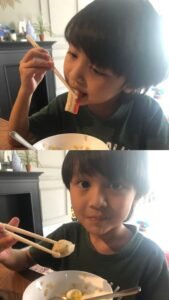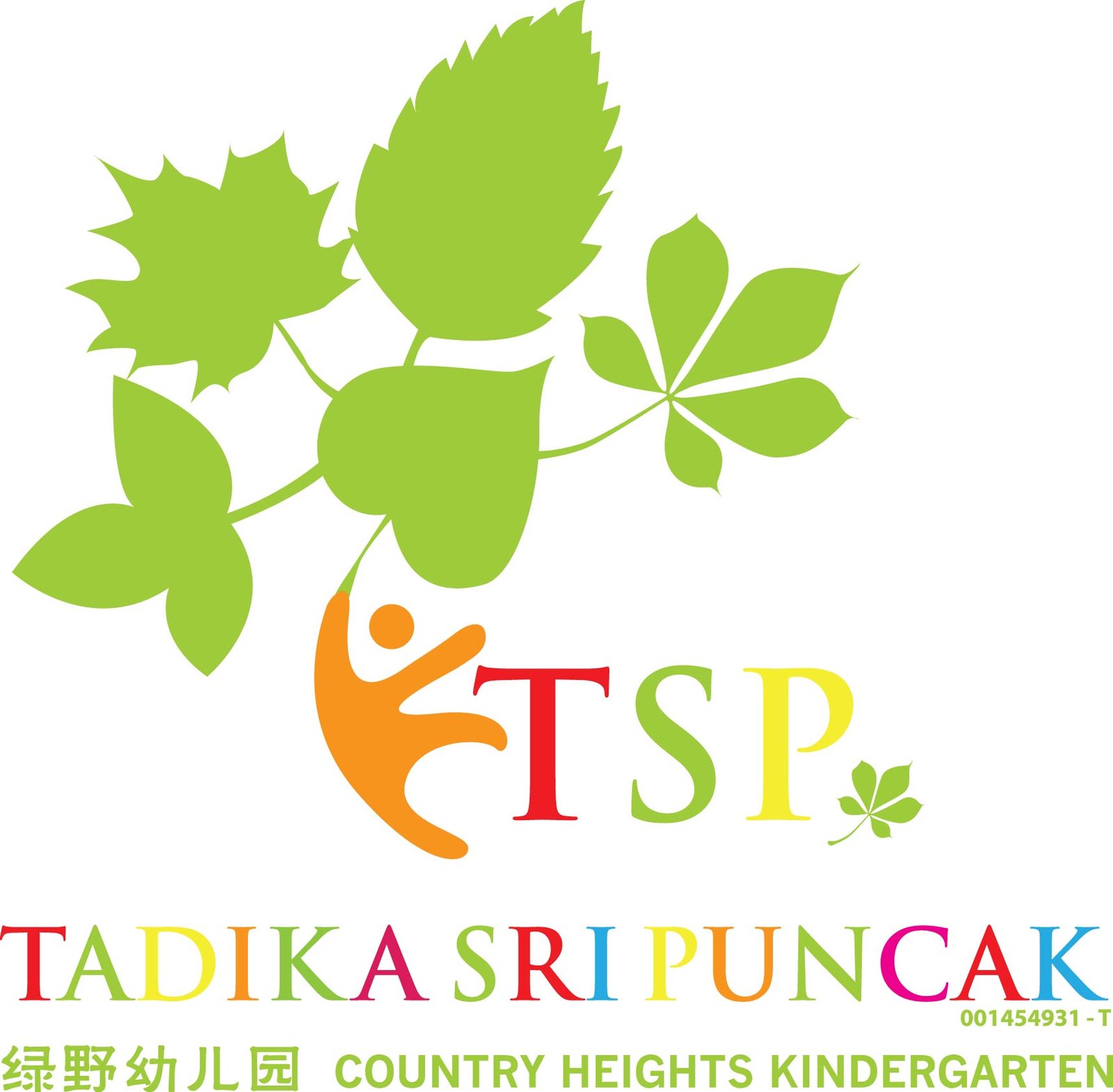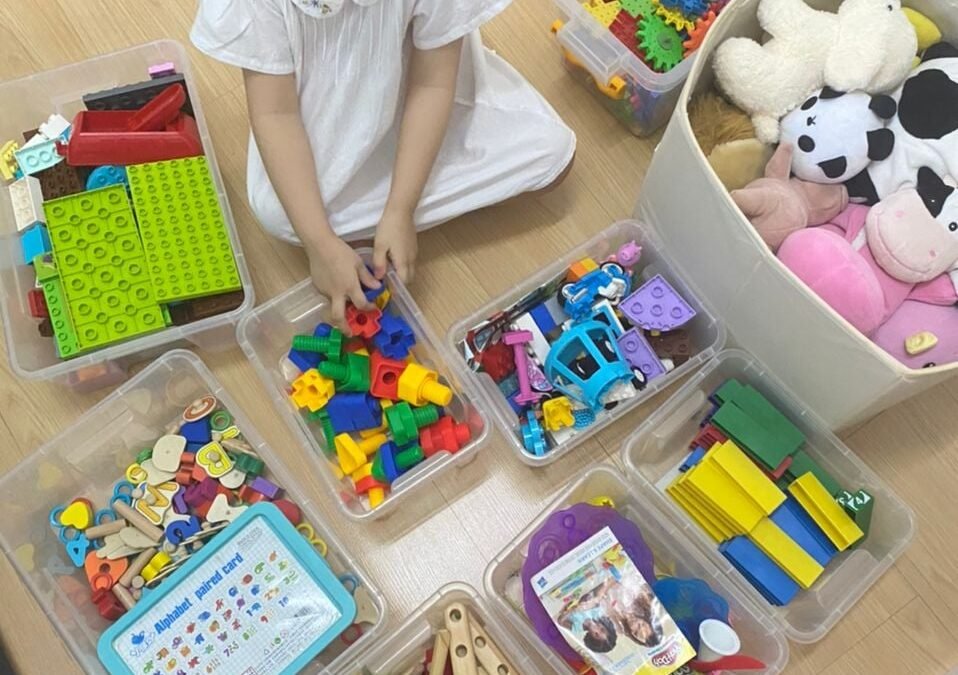
by Hidayah | Nov 9, 2021 | Exercise of Practical Life, Montessori Learning, Parenting
Often parents believe their children are unable to perform basic chores on their own, so they automatically jump in and do everything for them. But this is a big mistake! They should let the kids organize toys themselves and eliminate clutter they made on their own. Although seemingly a little thing, this contributes to forming a child’s personality. It also provides the child with work habits that will facilitate their life in the future!
When children participate in household chores, they learn how to organize their belongings in life. If our children organize toys and put those in the appropriate storage boxes, after play, without our help, it will positively contribute to their personality formation.
The side effect of teaching this well is a tidier house and fewer foot injuries when you step on those little plastic pieces that didn’t make it back in the bin!
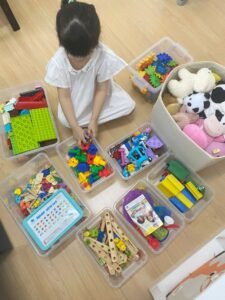


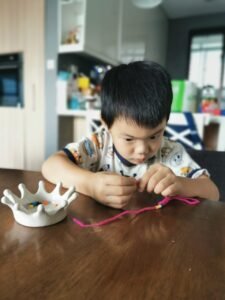
by Hidayah | Oct 12, 2021 | Exercise of Practical Life, Montessori Learning, Reflection
Threading beads, also known as stringing beads, is a great activity for toddlers and preschoolers and one that has numerous developmental benefits. Threading can be a challenging activity that takes a while for a child to master and is very much dependent on their maturity and fine motor development.
The important thing is that your child has regular exposure to threading activities. With time and maturity, he will develop better control and be able to thread smaller-sized beads. Threading is an excellent way to strengthen the finger muscles and learn to control the fingers as they work together.
Developing fine motor skills in childhood is essential if a child is to learn to hold a pencil and write. There is more value in doing pre-writing activities during the preschool years than in teaching a young child to write prematurely. When stringing beads, a child must learn to hold the bead with one hand while controlling the string with the other. Beading is a great way to practice colour recognition.
Visual perception is when the brain makes sense of what the eyes see.
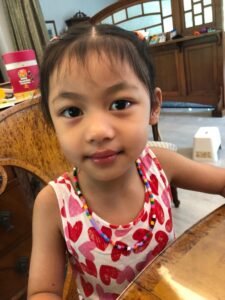
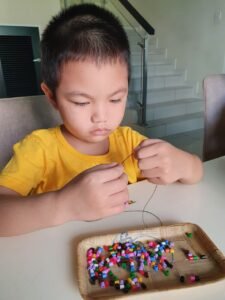
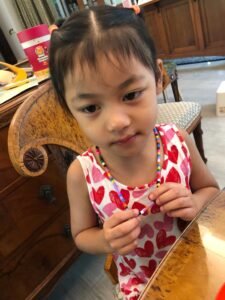



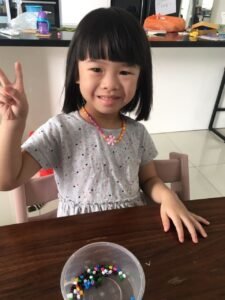


by Hidayah | Oct 5, 2021 | Exercise of Practical Life
Kids learn an easy weaving technique along the way. The method is simple, and materials are essential; they’re fun to make.
“A good life is like weaving. The energy created is in the tension. The struggle, the pull and tug are everything.” – Joan Erikson.





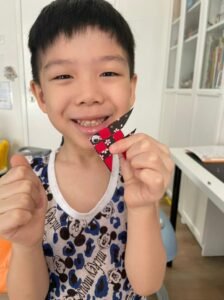
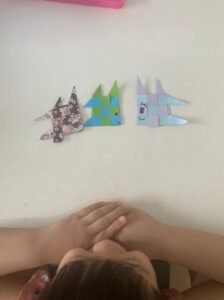
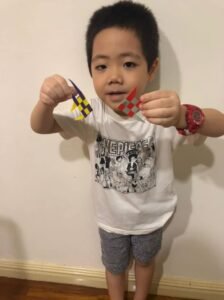
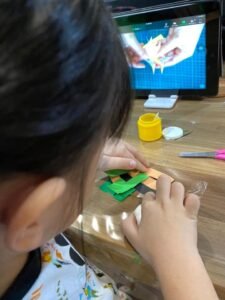

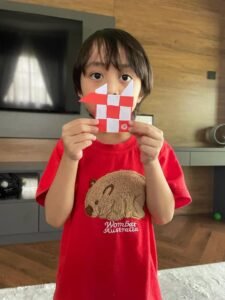



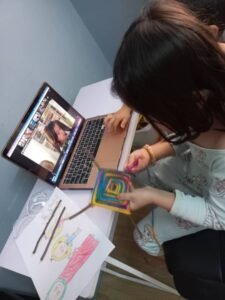

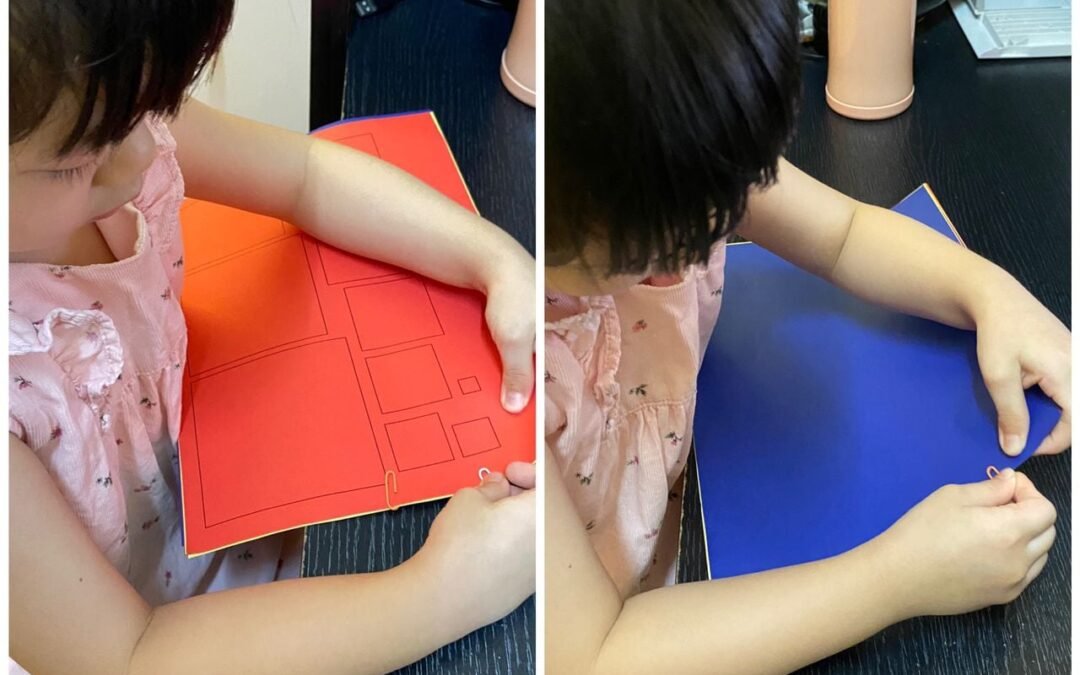
by Hidayah | Sep 28, 2021 | Exercise of Practical Life, Montessori Learning, Reflection
Pincer grasp: Paper clips are a powerful means of promoting the precision grasp between the thumb and pointer finger. This motor skill is essential for tasks that require strength and dexterity to manage small items like coins or turning pages in isolation.



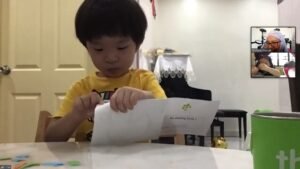
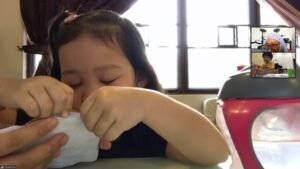
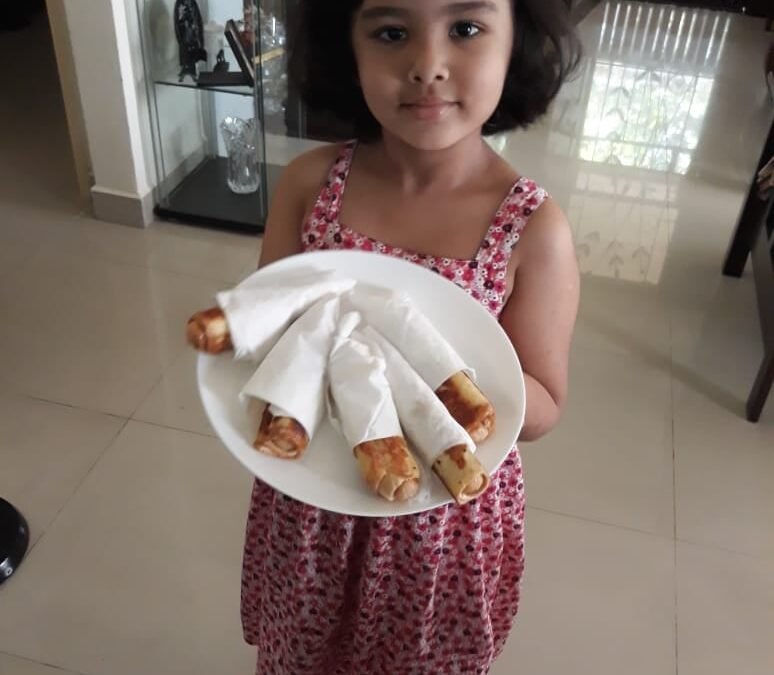
by Hidayah | Sep 28, 2021 | Exercise of Practical Life, Montessori Learning, Parenting
A kitchen is a learning lab for children that can involve all of their senses. While kneading, tossing, pouring, smelling, cutting, and peeling foods, they have fun and learn without being aware of it. Preparing a meal, snack, or drinks for the family is a fun way for our child to learn to share.
Children who cook at home indicate a “sense of accomplishment,” self-confidence, and feeling of contributing to their families. Good job everyone.



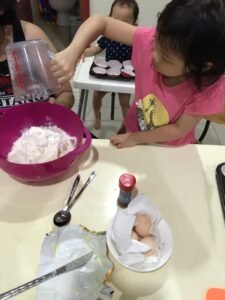




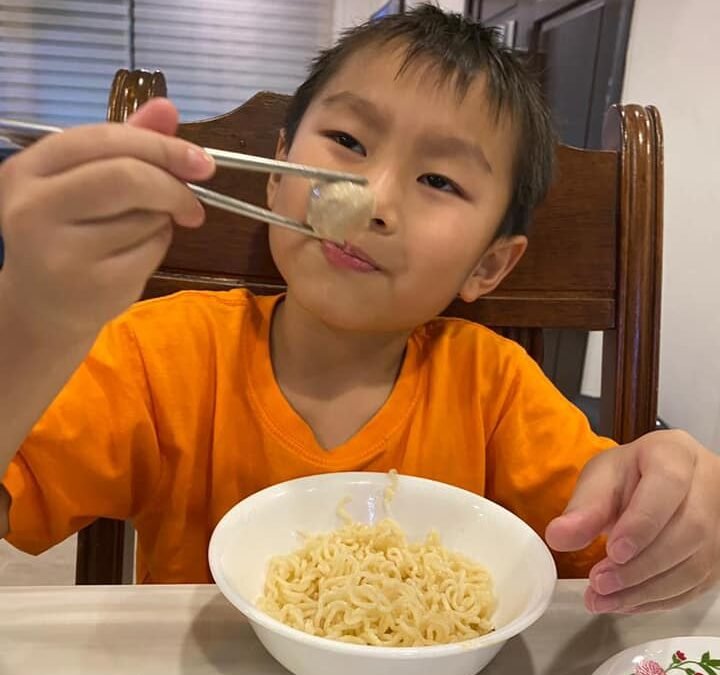
by Hidayah | Sep 13, 2021 | Exercise of Practical Life, Parenting
Using chopsticks is not only learning about a culture, but it is also enhancing children’s fine motor skills and hand-eye coordination. It also helps to stimulate intellectual brain development, develops the small muscles and allows the child to become familiar with the handwriting position at an early age.



